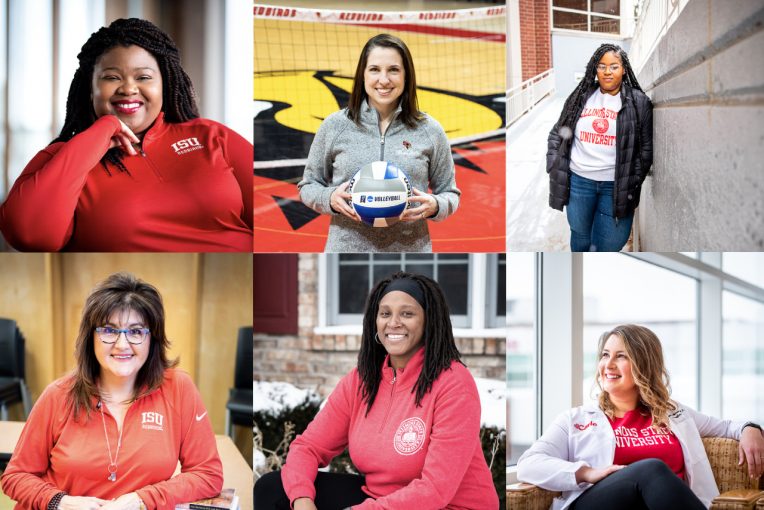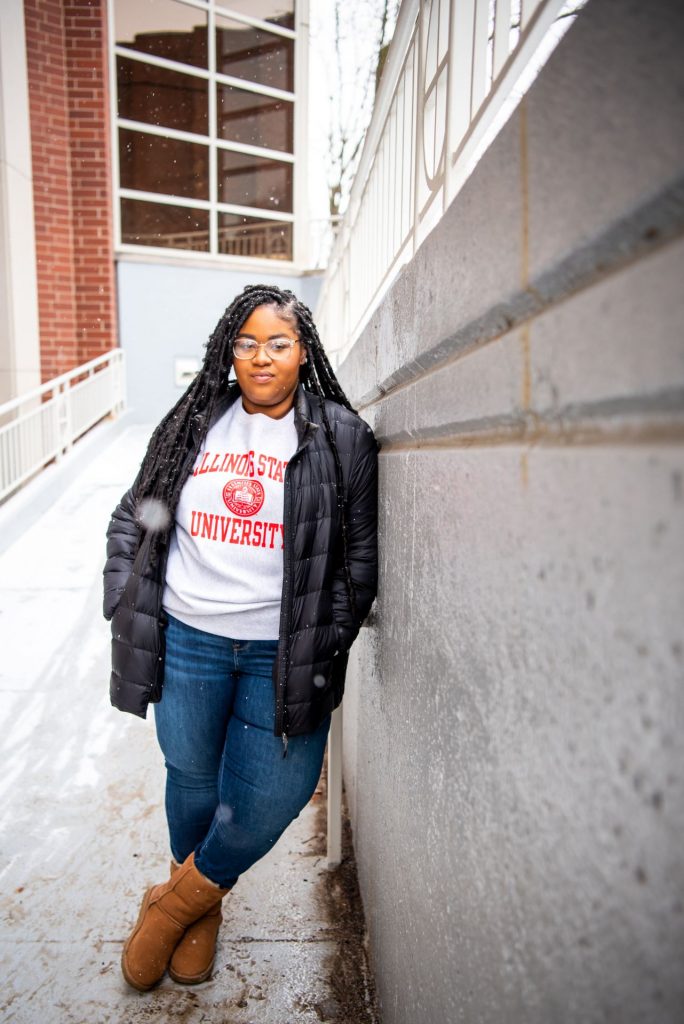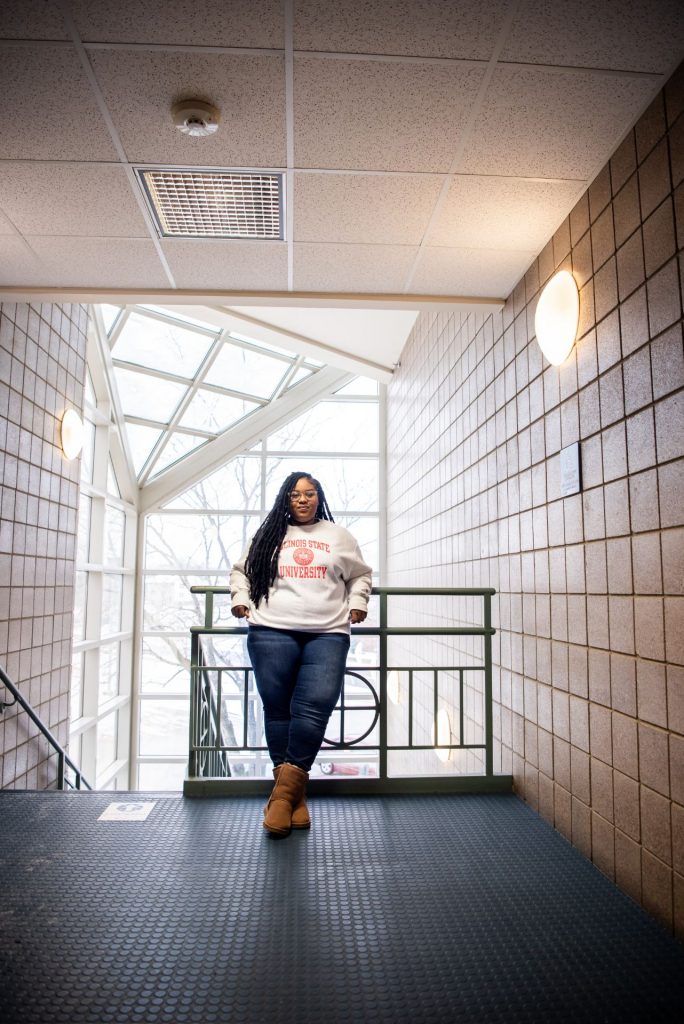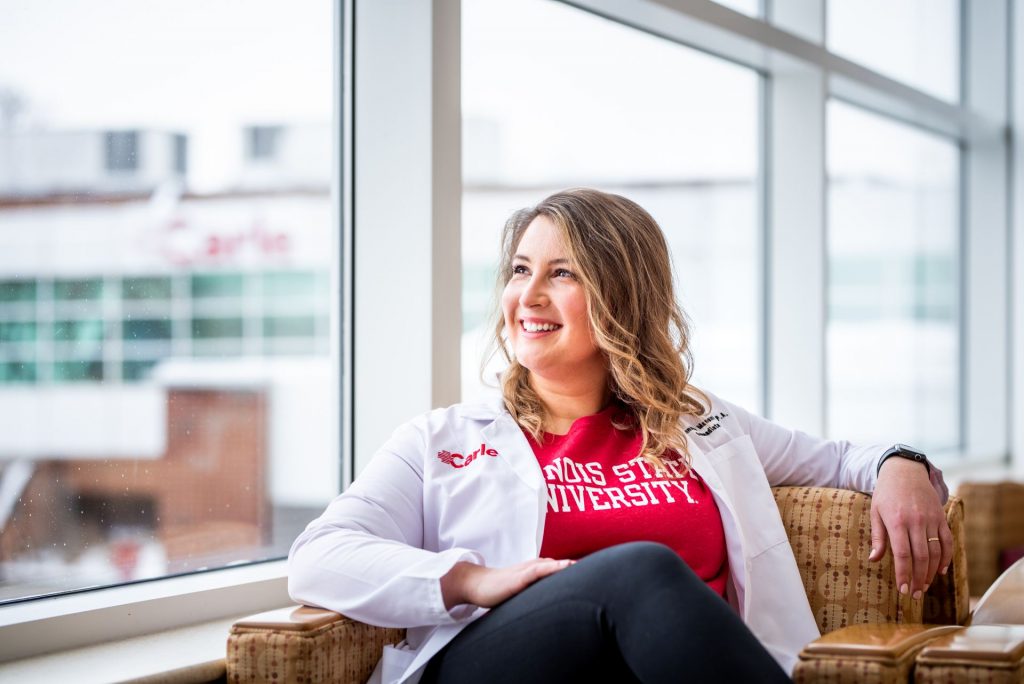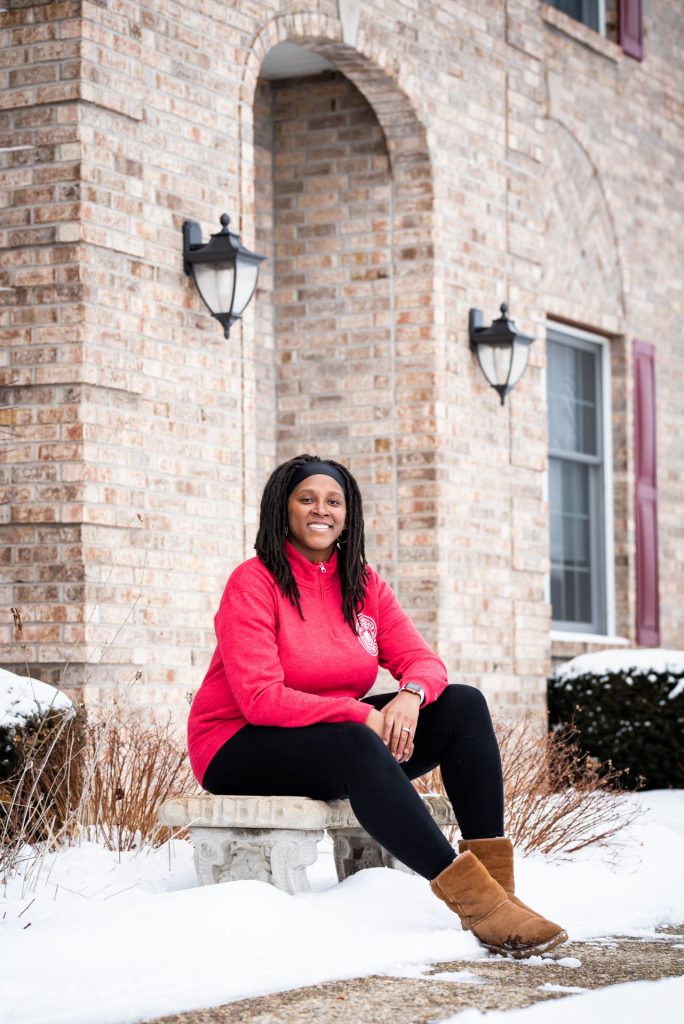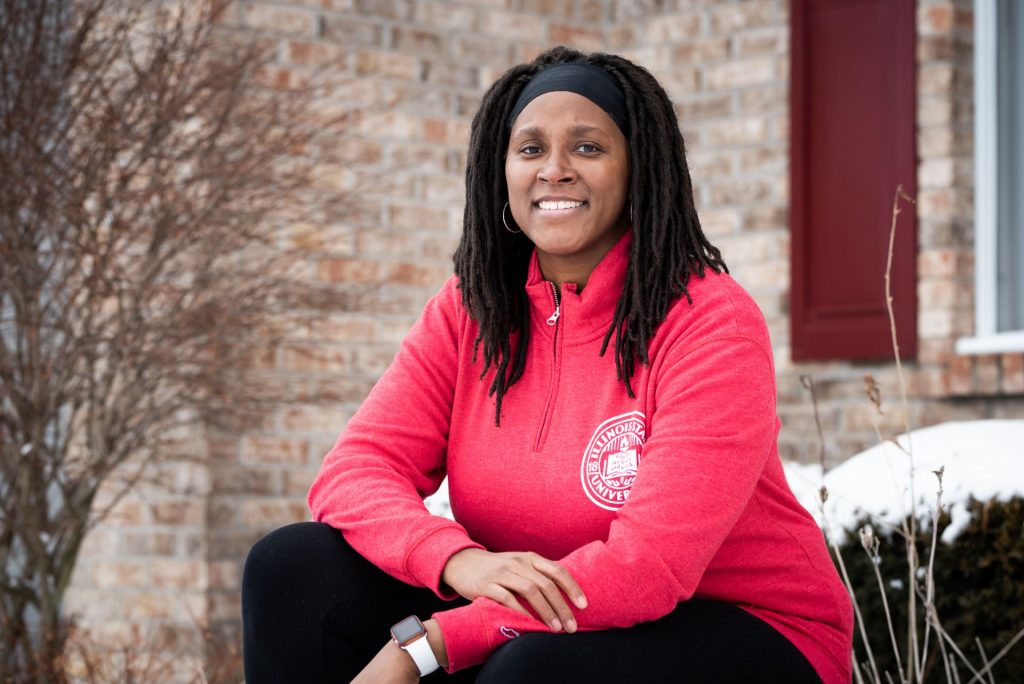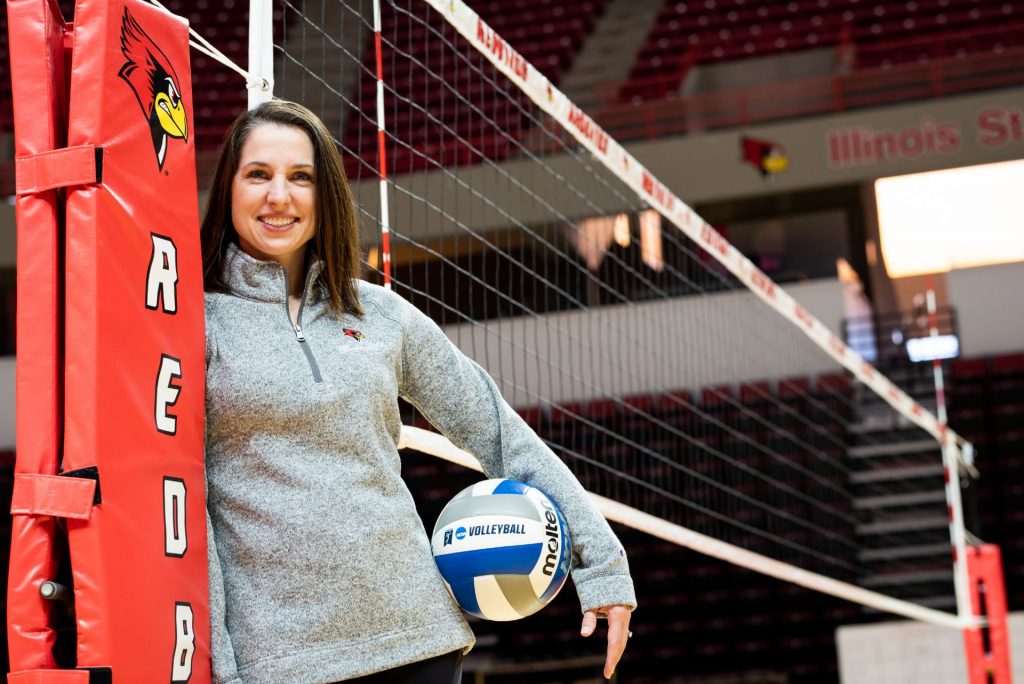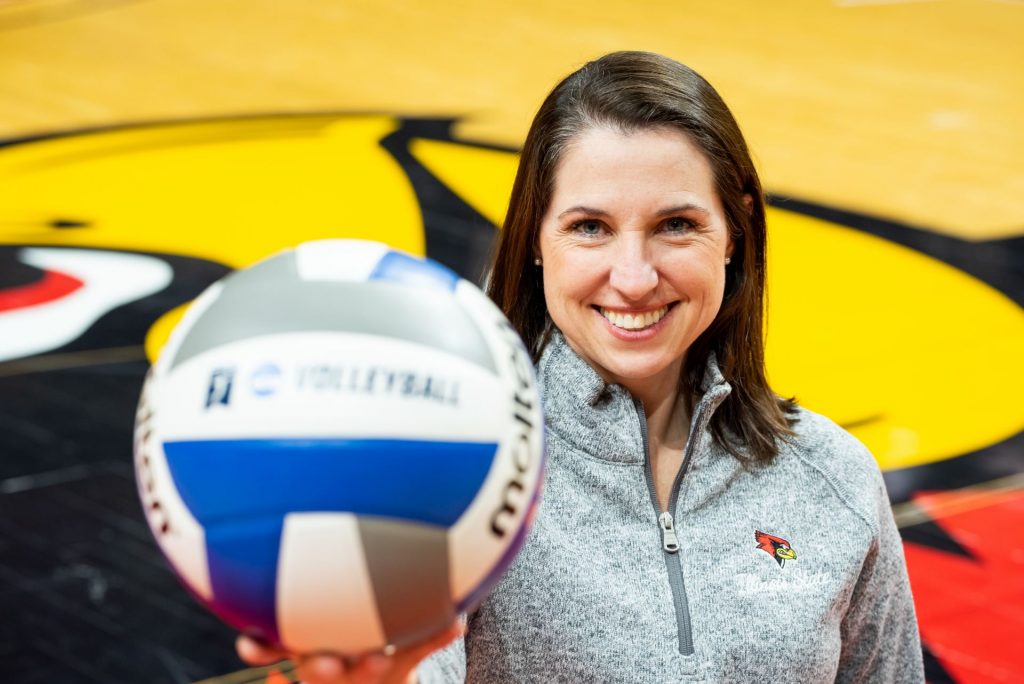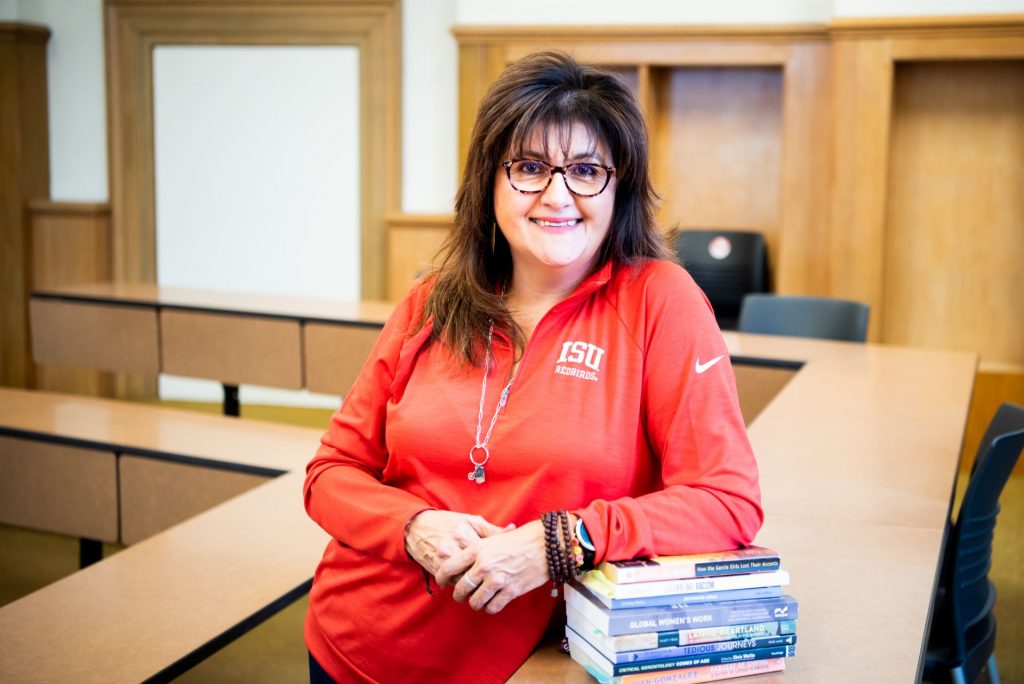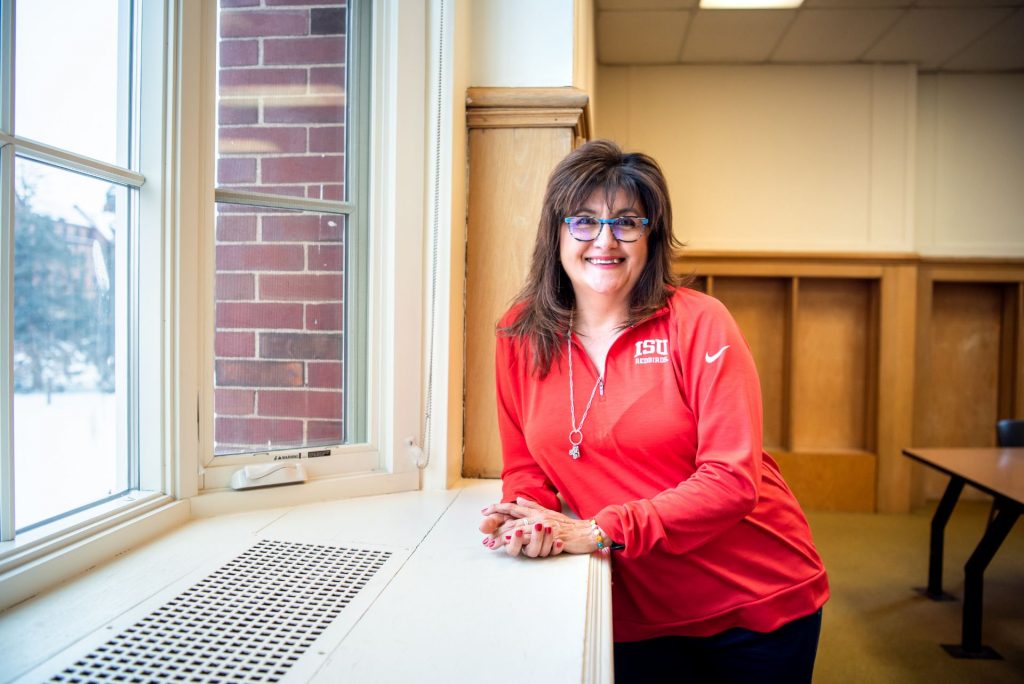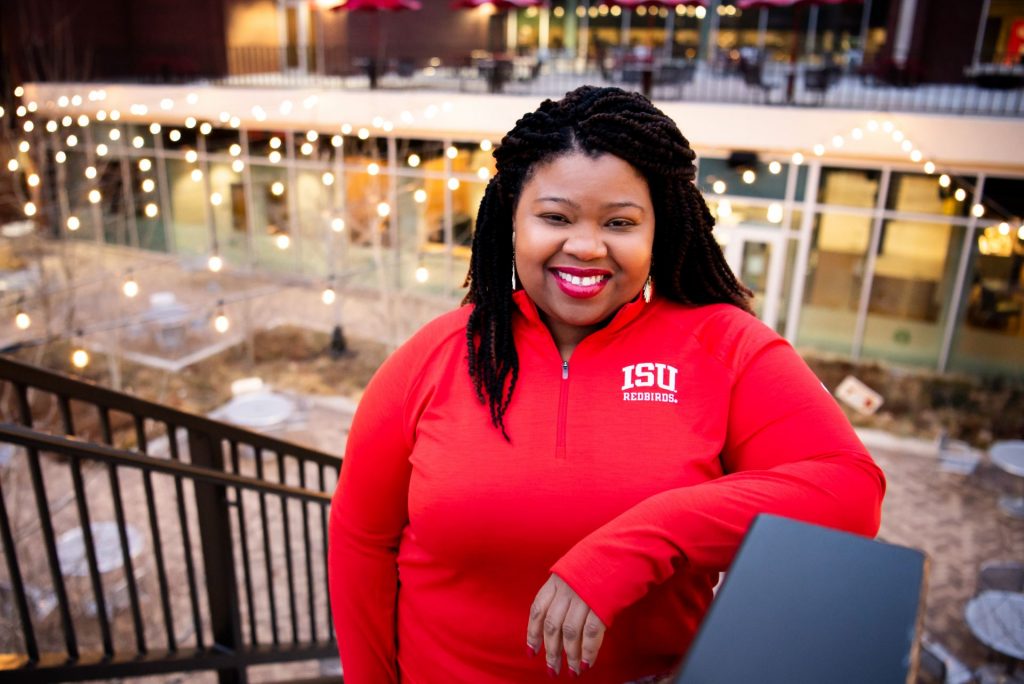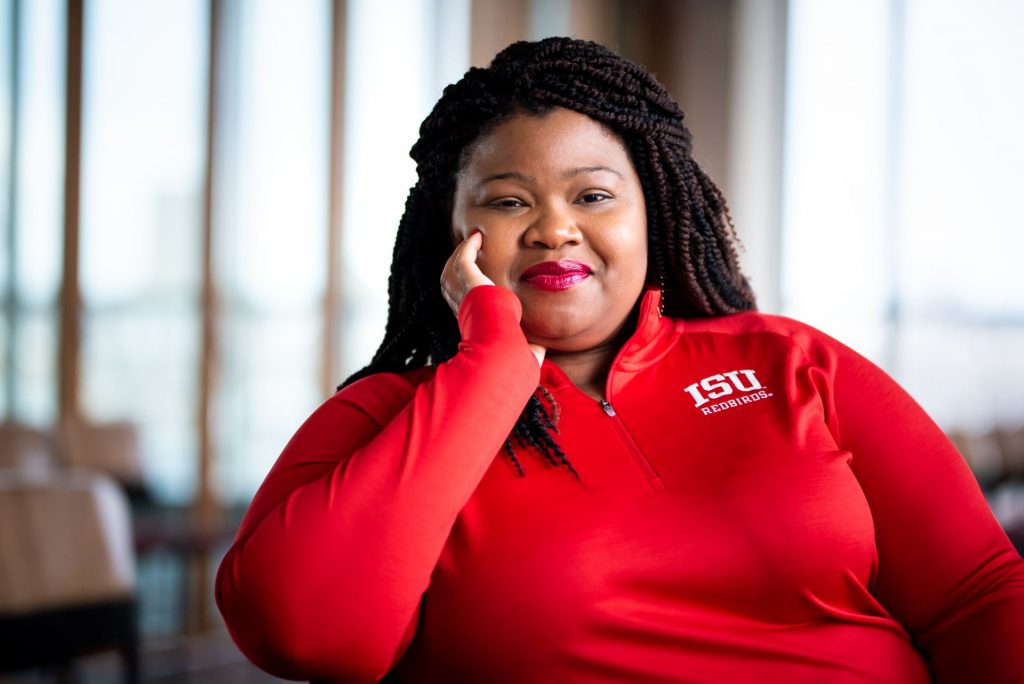March is Women’s History Month and we are celebrating all the Redbird women who are making a positive impact on the Illinois State University community. Since the very first graduating class at ISU, to our current students, student athletes, professors, staff, alumni, and fans, Redbird women have been breaking barriers and finding success.
Redbird women support the University’s core values of diversity, equity, and inclusion and they embody these values in their work every day. Redbird women wear their pride for Illinois State on their sleeves (often, quite literally) and share that pride with others. Redbird women strive for individualized attention in all arenas and work to positively impact the lives of every person they encounter.
There are so many Redbird women doing amazing things on campus and around the world, but here are some of the women making waves, breaking barriers, and working for the greater good of the Illinois State University community.
Lauren Harris, student body president
Q: What makes you proud to be a Redbird?
A: Being a part of a wonderful campus community. I have made great connections with students, faculty, and staff that have really shown me why ISU is an amazing school.
Q: You are the Student Body President and a member of the Diversity and Inclusion Advisory Council, appointed by President Dietz; what is the impact you hope to have on the Illinois State University campus community?
A: I hope to have pushed Illinois State University in the right direction towards becoming a truly equitable and inclusive campus with the advocacy work that I’ve done alongside Student Government Association and my peers.
Q: What does the future hold for you—what is next for you when you graduate?
A: I will be attending graduate school for Higher Education and Student Affairs in the fall of 2021.
Jenny Menendez ’13, former volleyball student-athlete, current physician assistant at Carle Health
Q: What makes you proud to be a Redbird?
A: To me, being Redbird Proud is much more than athletics and wearing a uniform. I am proud to be an alumna of a university that focuses attention on educational development while maintaining an environment of diversity and inclusion.
Q: How have your experiences as a frontline healthcare provider during the COVID 19 pandemic shaped you and your outlook on patient care?
A: Similar to many other people and families, experiencing this pandemic has been a whirlwind of emotion. Over the last year, as a frontline worker, I have felt very stretched personally and professionally, and I know many of my patients can relate to that feeling. I’d be remiss if I didn’t express my extreme thankfulness for my supportive family and my work team. Having this support allowed me to focus on providing my patients with the best and most compassionate care during an understandably fearful time.
Q: Do you feel your experience as a student-athlete prepared you for your career and life after Illinois State?
A: As an athlete, I developed many important skills which have heavily influenced where I am today. The two skills most utilized over the last year have been leadership and confidence. Leadership during the pandemic was critical and my career at ISU taught me how to clearly and effectively communicate under stressful circumstances; as well as keep a team engaged. The confidence gained during my four years as a student-athlete provided strength during tumultuous times. I knew I was capable of leading a team successfully because of my experiences in leadership as a student-athlete.
Q: What advice do you have for young Redbird women getting ready to graduate and embark on their careers?
A: My advice for women is to be ambitious in their personal and professional aspirations. Take the opportunities to lead or do something new, and do not feel the need to second-guess your “newness.” That newness to a situation is an advantage because it brings an unbiased perspective set to challenge the status quo.
Brea Banks ’10, Ph.D. ’15, psychology professor
Q: You’ve studied at Illinois State, played for the women’s basketball team, and now you are a professor in the department of psychology–what makes you proud to be a Redbird?
A: Community! Given the amount of time I spent at ISU and in Bloomington-Normal as a young adult, this is home. When the opportunity presented itself for my family to return we couldn’t have been more excited. I grew up here, met all of my closest friends here, and met my partner here. I value relationships a great deal, and when I think of the connections I’ve formed with colleagues who used to be my professors and the students who will soon be my colleagues, I’m grateful. In the short time, I’ve been here as a faculty member, I’ve also started to form some close collegial relationships with folks across campus in other departments and units. I’ve appreciated these connections and truly value them because there are folks here who truly care. As an early-career faculty member, I’m still learning and growing, and I attribute a great deal of this growth to multiple folks on campus who I view as mentors. This is special, as I know my experiences are unique in comparison to those had on other campuses.
Q: As a long-time Redbird, how are you hoping to shape the campus community through your work with students, staff, and other faculty?
A: So much of the work I engage in on a day-to-day basis has equity and justice at the forefront. My research, the classes I teach, and the service I’m involved in on and off campus all have these goals in mind. I had a GREAT experience here as a Redbird. That doesn’t mean that I didn’t have some challenges, but I had folks in my corner who helped me be successful. I want that for all of our students, and I know that many folks on campus share a vision of an inclusive campus environment that is equitable for all of our students, staff, and faculty. It’s attainable, and I think we just have to be intentional about the work we’re doing and not just moving along with the status quo because it’s always been done that way. Instead, we must constantly think about how our everyday practices and the policies in place uphold systems that disadvantage certain folks and actively do work to change them. I hope that my work in the classroom, lab, and as part of service accomplishes that.
Q: Your research focuses on microaggression and student of color experiences in higher education–what do you hope your students take away from their experience in your classroom?
A: I really try to foster a lab environment that is collaborative. Students choose to work with me because they too want to engage with research that speaks to the injustices that folks holding marginalized identities experience. That work is sometimes hard, stressful, and triggering. So it’s really important for students in my lab to support each other. Further, psychology as a discipline doesn’t have the best track record when it comes to scholars’ engagement in research practices that are equitable. We have these discussions a ton in lab because I want my students to leave being able to design studies that are inclusive, critically examine the existing literature, and understand that when they analyze and interpret data, their values and bias are present. I think this is important obviously for those who go on to have careers in academia, but I also feel like these skills are transferable to clinical work.
Leah Johnson, head women’s volleyball coach
Q: Can you share a bit about your background and what led you to pursue a career in coaching?
A: Although I played every sport available to me growing up I was drawn to volleyball– I enjoyed the technical challenges and the clever yet subtle strategy of it all. I played in college while studying Spanish. I was fortunate enough to enjoy three study abroad immersion trips, which led to my interest in international affairs. I went on to get my master’s degree in Global Affairs. During the two years pursuing my master’s I started my own youth volleyball club. It wasn’t until I was deep into the club circuit that I realized that I wanted to be in the gym every day and continue working with student-athletes; it became clear that working with young women through sport was my passion. Following graduate school, I started coaching at the college level and now I am finishing my 14th year as a collegiate volleyball coach with two kids of my own in tow.
Q: What makes you proud to be a Redbird?
A: The joy and positive experience that our student-athletes and student body enjoy as members of this university and community is what makes me proud. I get to have intimate conversations with each of my athletes over the course of their tenure at Illinois State and it is amazing to see how much they learn and grow each step of their journey here at Illinois State. That doesn’t happen accidentally–it is a process of professors, advisors, mentors, and community supporters creating a college experience that is both challenging and rewarding. That makes me proud. It is an incredible school and experience that I proudly serve but a very small part of a greater mission in the students’ lives.
Q: As the head coach for women’s volleyball, how do you hope to impact the women you coach?
A: My greatest hope is that each woman who passes through our program found safety, support, and the confidence to take big risks. That they could step outside of the boxes in which they arrived to discover and explore their ambitions, desires, and personal development in their own unique way so that when they leave they are steadfast in their convictions, confident in the work they put in to get there, and loyal to the school and program that supported them along the way. Through it all, I hope they enjoy their journey and some successful volleyball along the way.
Maura Toro-Morn, sociology and anthropology professor
Q: Can you share about your background and the path you took to get to Illinois State?
A: ISU was my first job after completing my doctoral studies at Loyola University. I have loved working at ISU. It is a great community of first-rate scholars and teachers committed to our students’ learning. I belong to that special group of Redbirds that came here first to study, went away, and then came back to work.
Q: What makes you proud to be a Redbird?
A: I am proud to be a Redbird because of the institutional commitment to hiring and recruiting diverse faculty, staff, and students. I have been at ISU for more than two decades and I have been part of many, sometimes difficult, conversations about how to deepen the commitment to diversity across the board. Educational institutions do not move fast enough to implement change, but they do move, as we collectively move them through developing academic programs, encouraging student involvement, and sustained community participation.
Q: You are an award-winning professor of sociology, Latinx studies, and women, gender, and sexuality studies; what do you hope your students take away from their experience learning from you?
A: I hope that students learn that since its origins this country has been a multilingual, multiracial society with a rich diversity that extends beyond its borders.
Christa Platt, director of the Multicultural Center
Q: What makes you proud to be a Redbird?
A: I’m proud of what it means to be in a community with dynamic students, mentors, colleagues, friends, and sista-friends who show me on a regular basis what it means to be resilient, change agents, resisters, and truth-bearers. I feel extremely proud and honored to be surrounded by such amazing people.
Q: In a 2020 article by Megan Rolfs, you explain that your commitment to disrupting oppression through amplifying the voices and experiences of historically marginalized communities is a part of your life’s work. How do you hope to continue to impact the Illinois State campus community as the director of the Multicultural Center?
A: A few years back, the Redbird community invested in an equity audit that left us with a clear recommendation to create and invest in affirming spaces for students of color. I hope to breathe this recommendation out every day by continuing to partner with our students by hearing, validating, investing, believing, and being accountable to them.
Q: You are an award-winning educator, campus representative, and outstanding member of the Bloomington/Normal community. What has been the key to your success, and what do you hope young female students take away from their interactions with you?
A: I believe success is directly related to purpose. While I have achieved a level of success, I have so much more to produce on the earth. I’m excited to continue striving for success as I seek to live out my God-given purpose. Maya Angelou said, “at the end of the day, people won’t remember what you said or did, they will remember how you made them feel.” I hope those who engage with me feel like their lives matter and that they are a gift to me and the world.
Q: Who has inspired you?
A: I come from a long line of dynamic black women (and an amazing dad). From my grandmothers, to my mom, sister, aunties, pastors, professors, and mentors. They have intentionally poured knowledge, wisdom, faith, counsel, strategy, and resourcefulness into me. They have intentionally poured into my life, my heart, and my spirit. I have not had to go far to find inspiration.
Each of these women and their stories make us #RedbirdProud. If you want to represent Illinois State no matter where you are, shop our updated and fashion-forward women’s apparel options–like the gear you see on these Redbird women–online and at our local retailers. And for more Women’s History Month content, Redbird apparel, giveaways, and more, follow @ISURedbirdsShop on Instagram.
Shop their looks:
